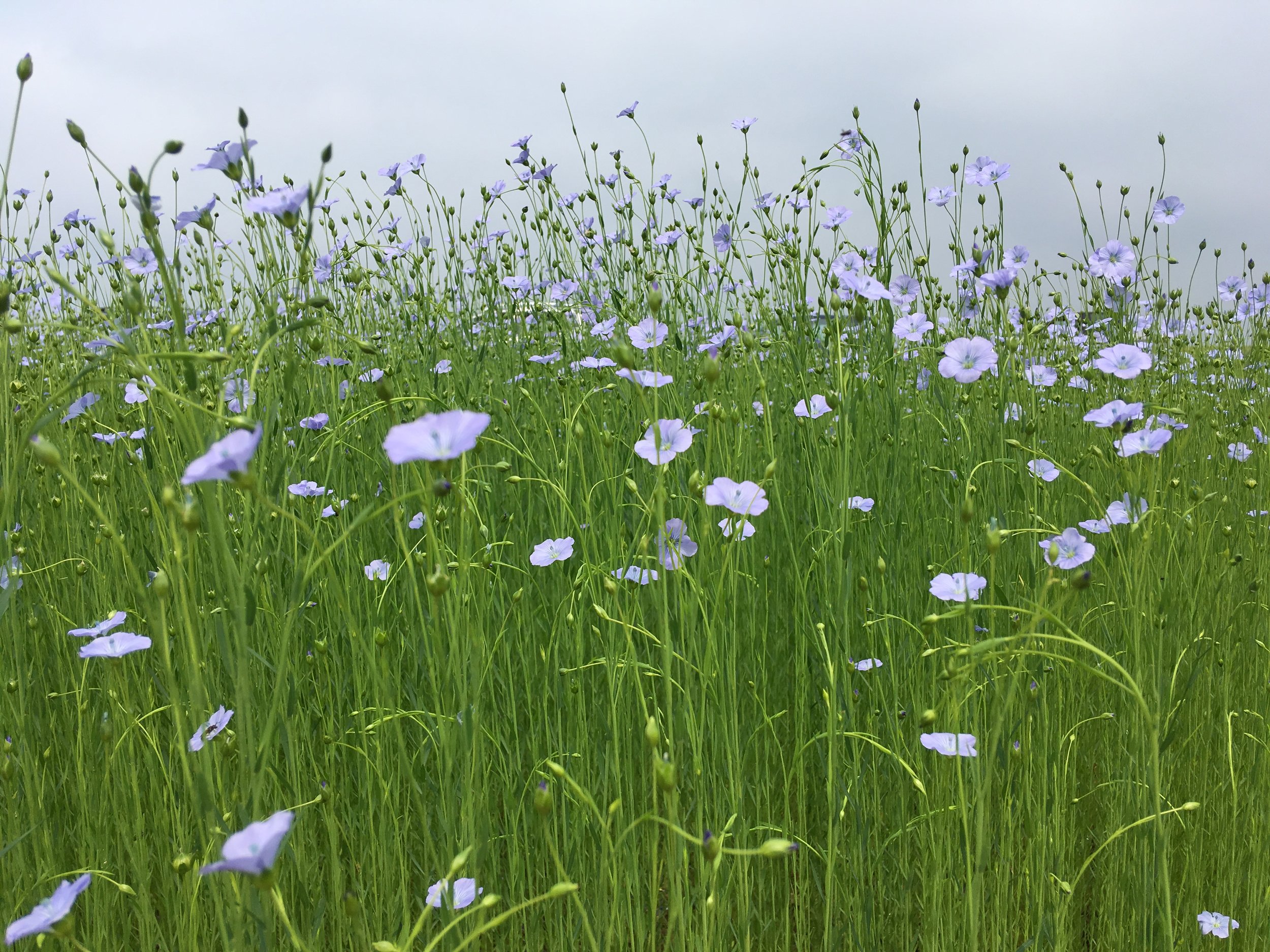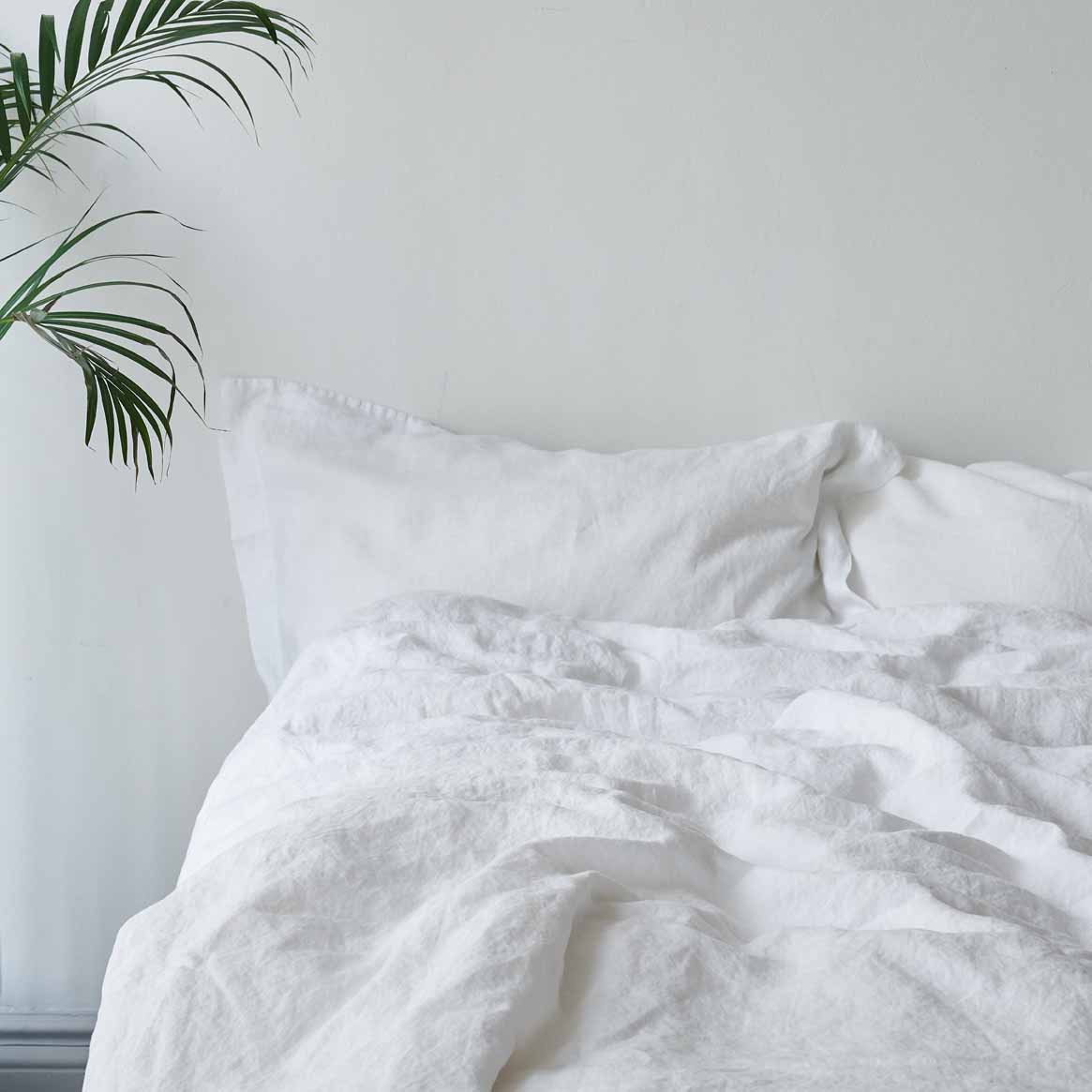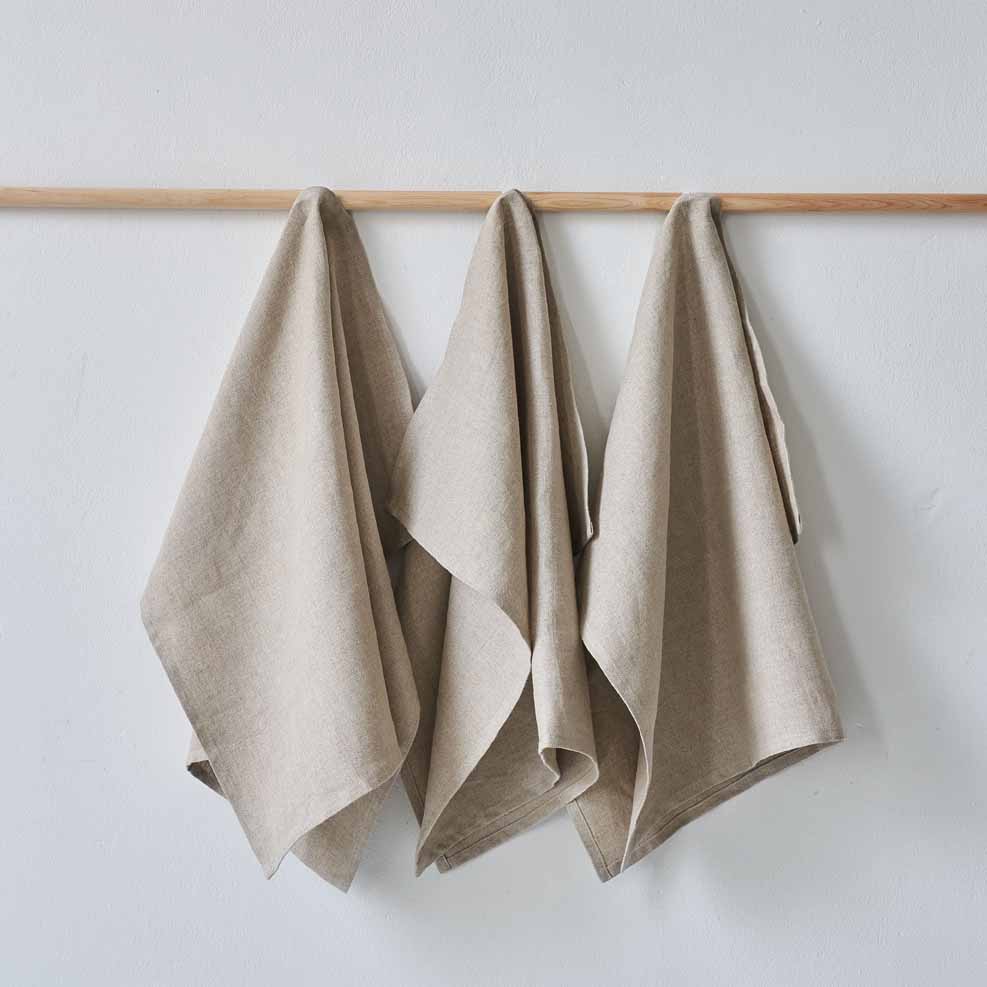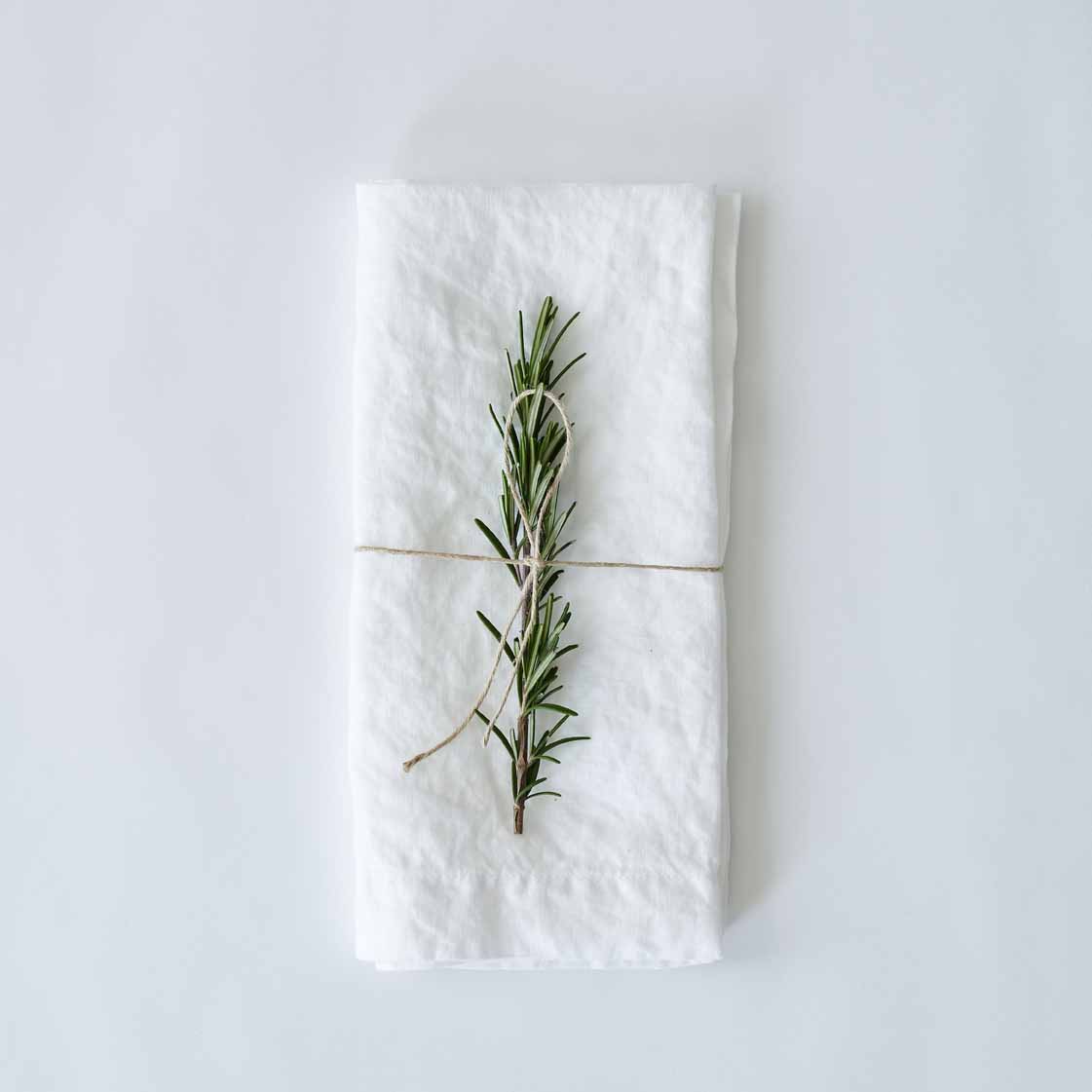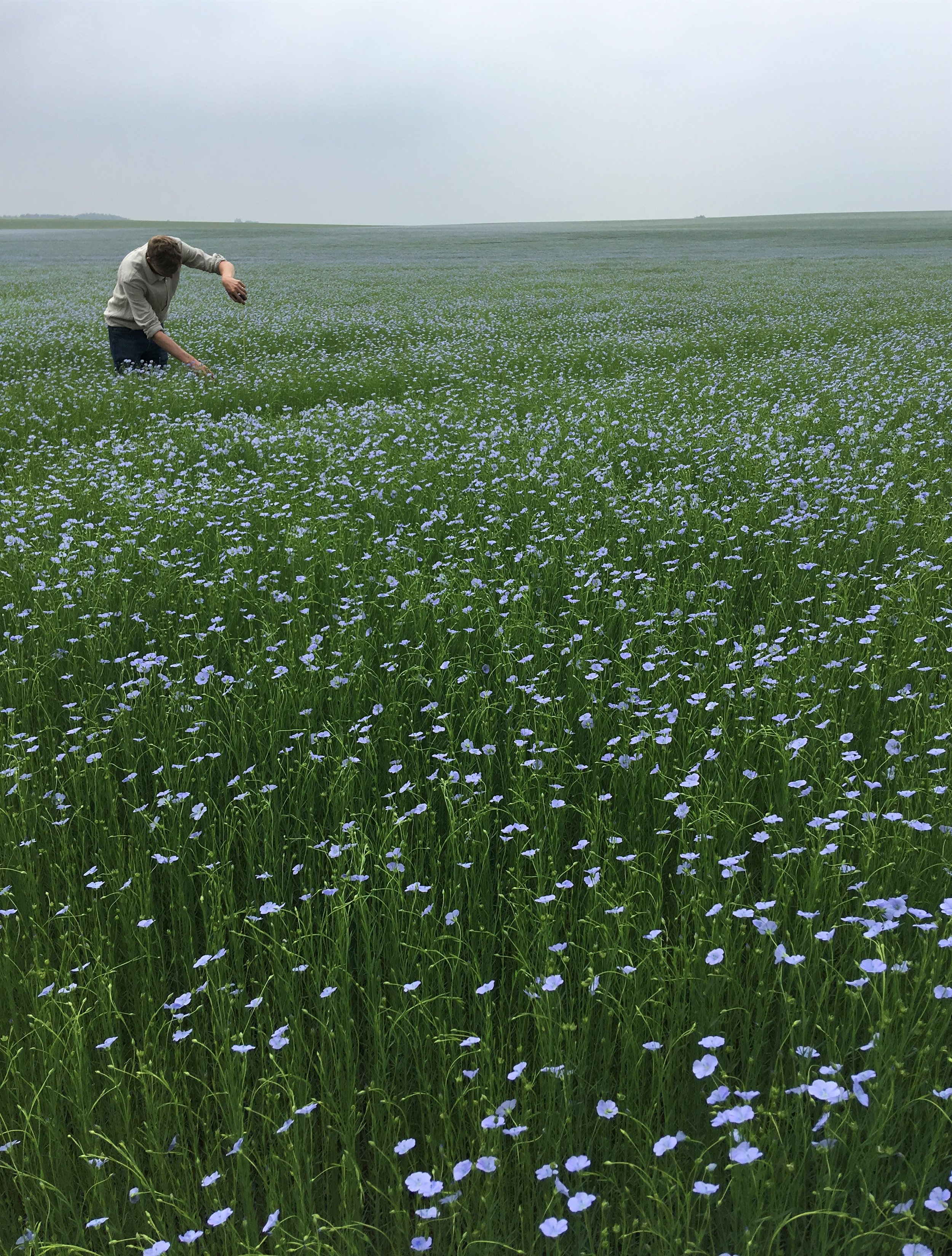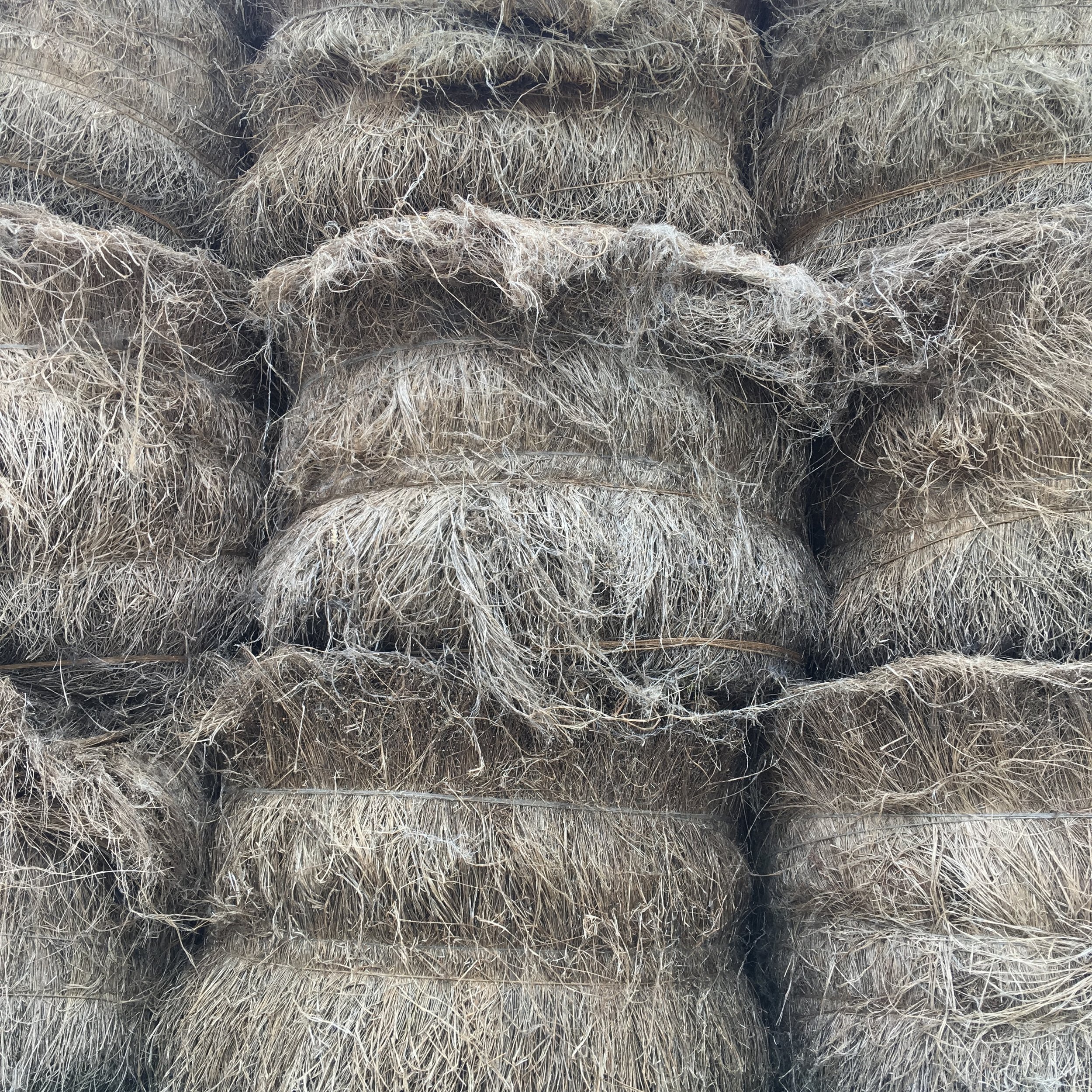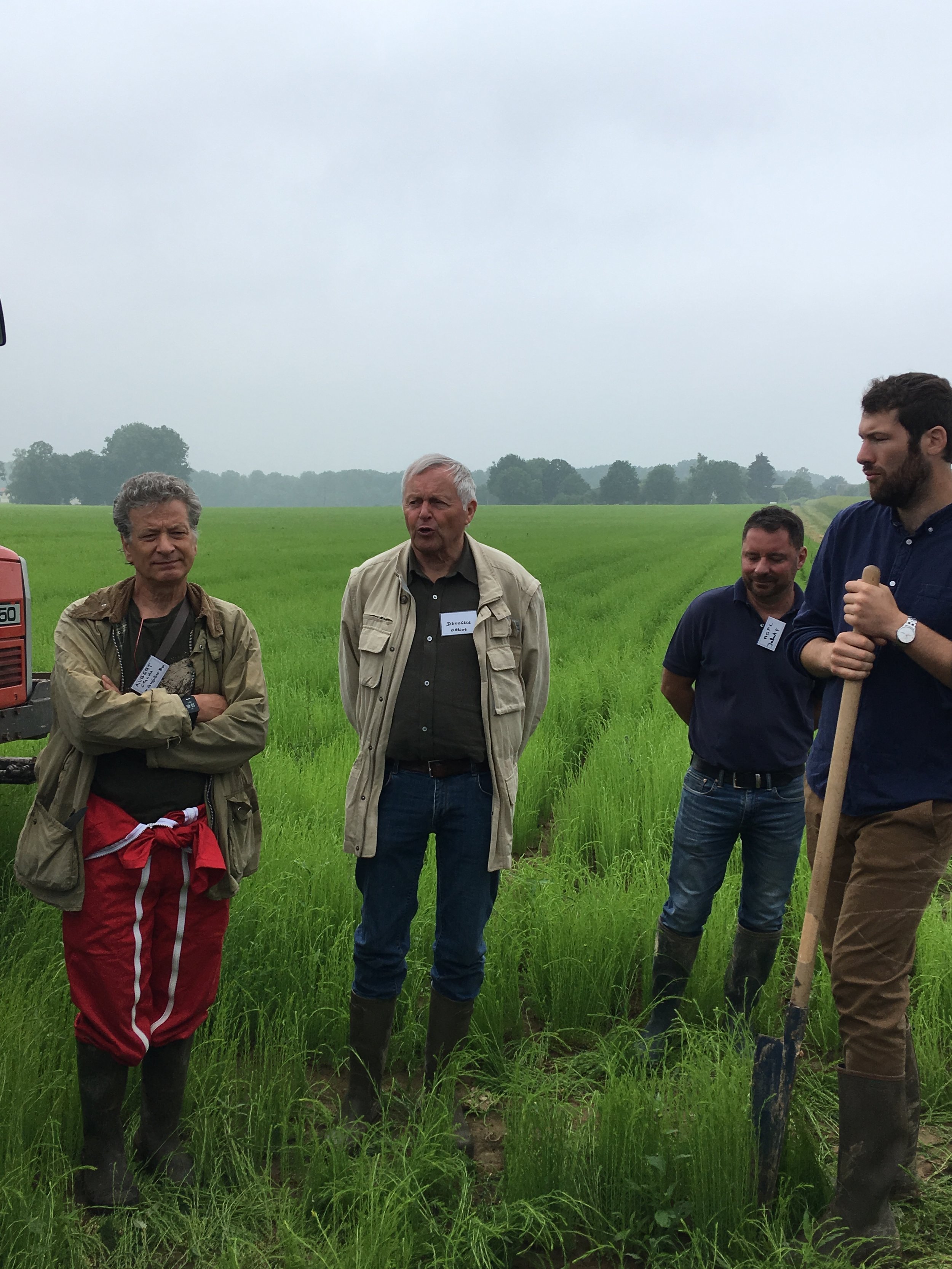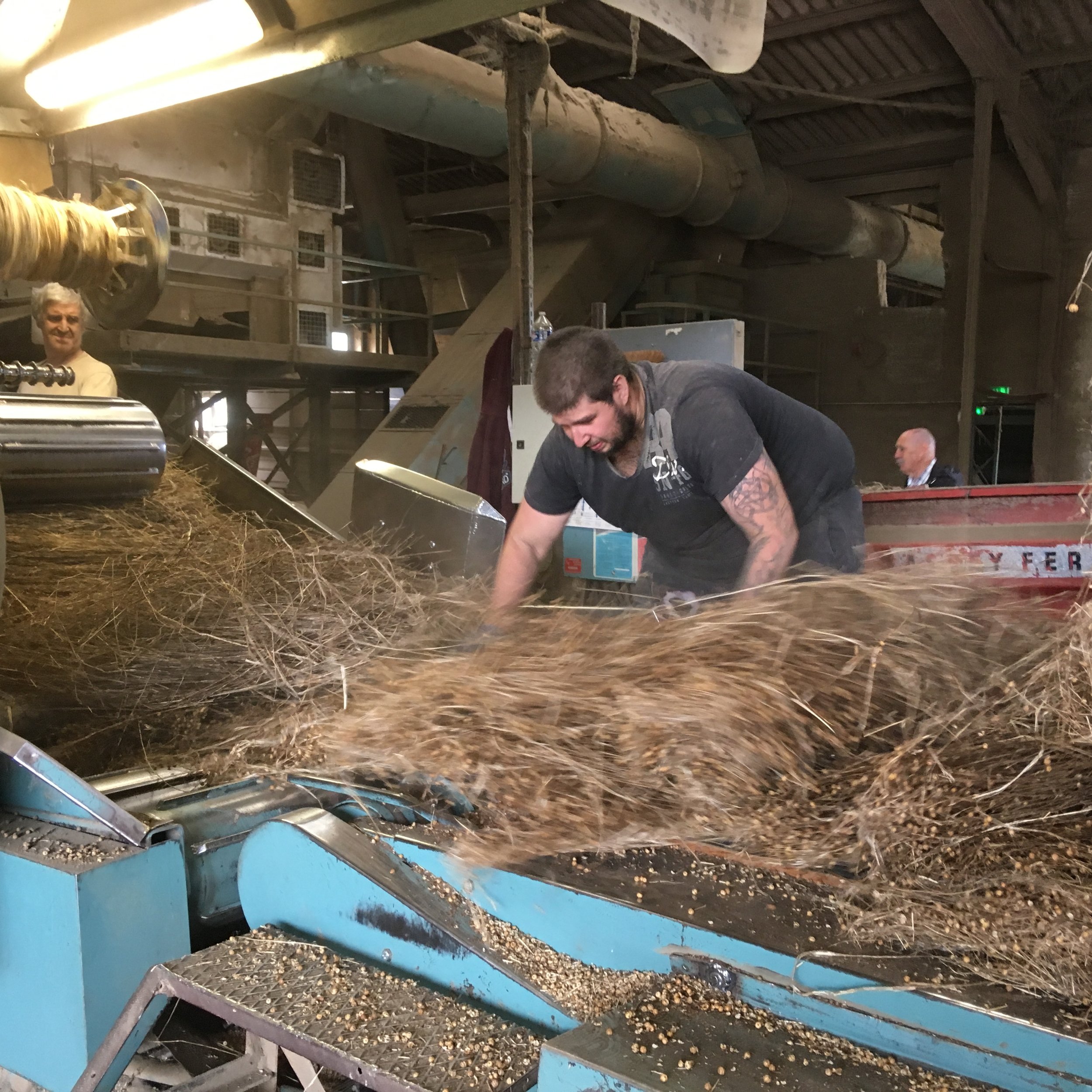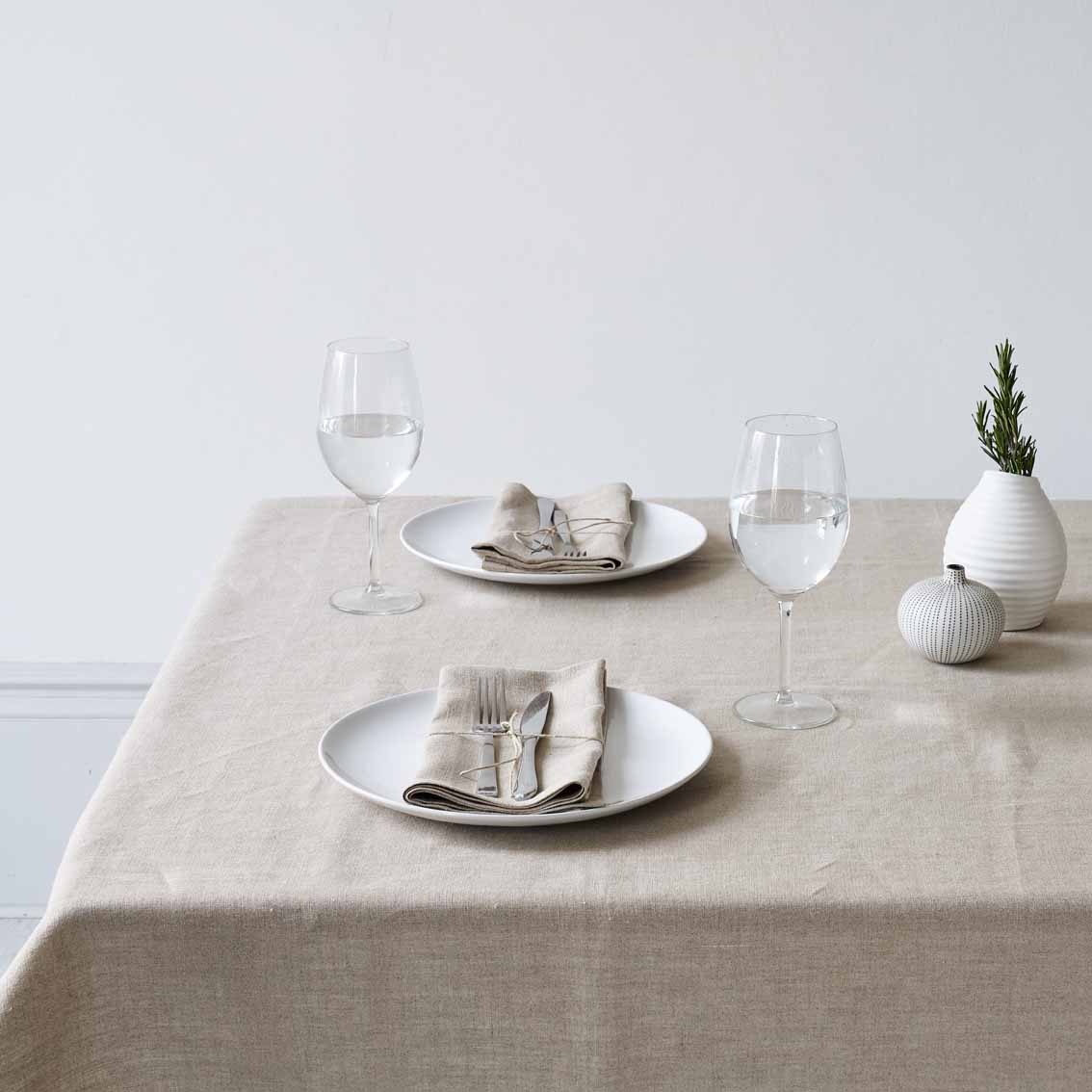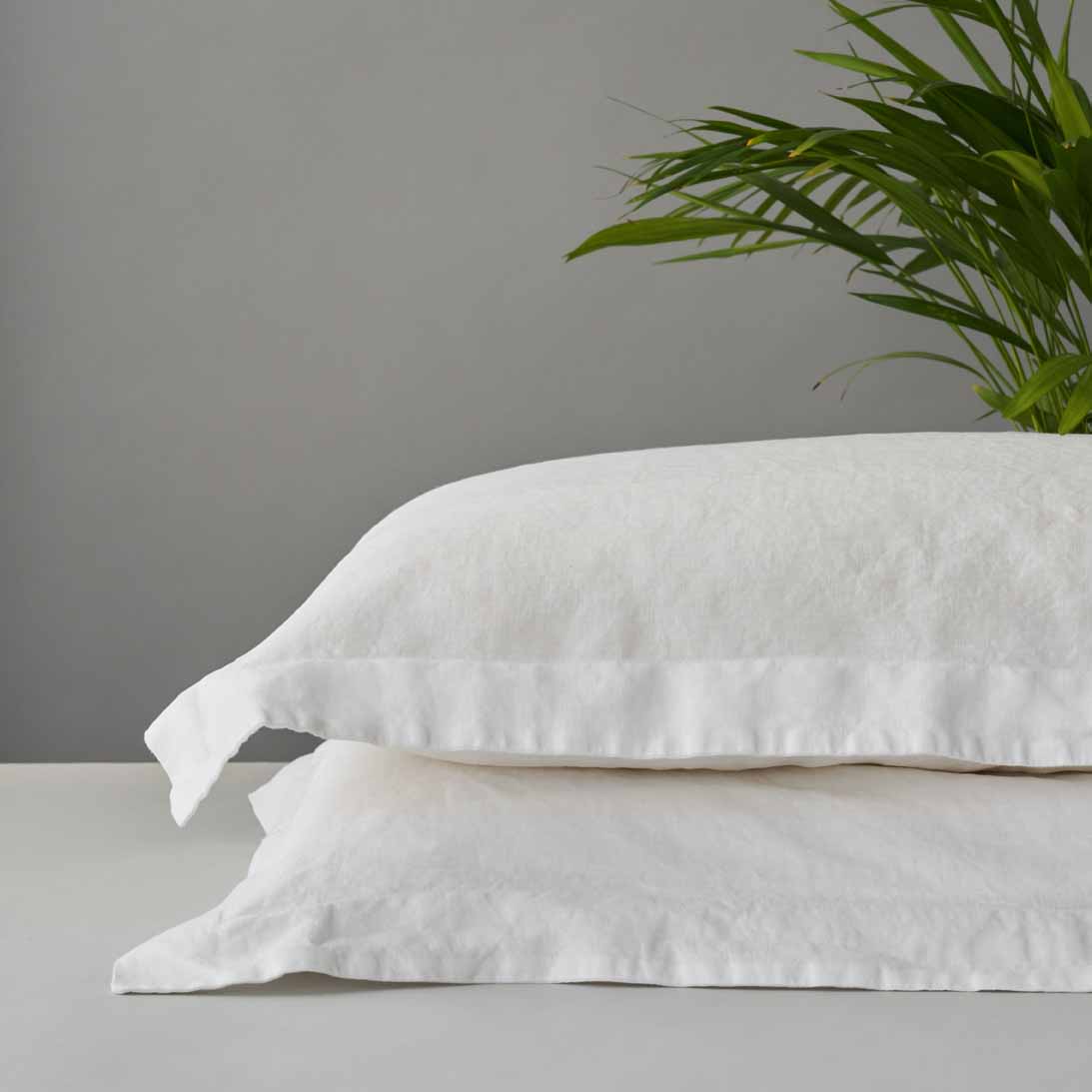Organic Linen: the ultimate in sustainable luxury
Linen is one of my favourite fabrics. I adore its ‘slubby’ threads, which give it a beautiful character and a look that is both elegant and down to earth. I also love that it’s super absorbent, which makes it ideal for table and kitchen linen, as well as summer bedding.
Linen is also pretty good from an environmental perspective. The fibre that it’s made from - flax - is grown primarily in Northern Europe, where climatic conditions are perfect for its cultivation, so it requires no irrigation and little in the way of pesticides. Its low-impact cultivation methods are the reason why linen is generally considered a more sustainable fibre than cotton, as the latter (with the exception of organic cotton) is usually grown using large amounts of ground water and chemical inputs.
I had been wanting to introduce linen into Ecosophy’s collection for a while, but before doing so, I wanted to discover how sustainable linen really is, so I did a bit of research. What I discovered is that while linen is certainly less bad for the environment than regular cotton and most other fibres, it’s not exactly harmless. It is often cultivated using herbicides and fungicides, the amount of which may be lower than in cotton cultivation, but is still significant. After researching the production process, I wasn’t convinced that regular linen was as sustainable as it’s made out to be, so I decided to find out if anyone was growing flax organically.
After a lot of research, I discovered a group of flax farmers in France that were pioneering organic methods. I managed to contact them and was invited on a tour of their farms. In June 2018, I set off on the Eurostar to Paris and traveled about two hours outside of the city to the area of Seine-et-Marne. Joining me on the tour were a group of designers, farmers and scientists, all of whom were keen to learn more about organic linen and promote it in their respective fields. On the tour, we visited organic flax farms, learned all about the methods they are using and the other crops they are growing - one of the main one being hemp - and visited the scutching facilities where the flax crop is processed. The tour provided useful insight into the production process of organic linen, but what came across most clearly was the farmers’ commitment to and enthusiasm for organic methods.
Linen accounts for less than 1% of global textile production, and only 1% of it is organic, so organic linen is an extremely rare fibre and its price is consequently quite high. Currently, the majority of linen, including organic linen, is spun into yarns in China. However, the organic linen we are using is produced entirely in Europe. This again adds to the cost, but it makes the supply chain easier to trace.
Organic linen represents the ultimate in sustainable luxury. It is a pricey material, but by investing in it, you can enjoy the benefits of linen while knowing that you are supporting a farming process that is at the forefront of sustainability.
At Ecosophy, we are proud to be the first brand in the UK to introduce organic linen into a home textiles collection. Our organic linen collection includes bedding and table linen. To see the whole collection, click here.

